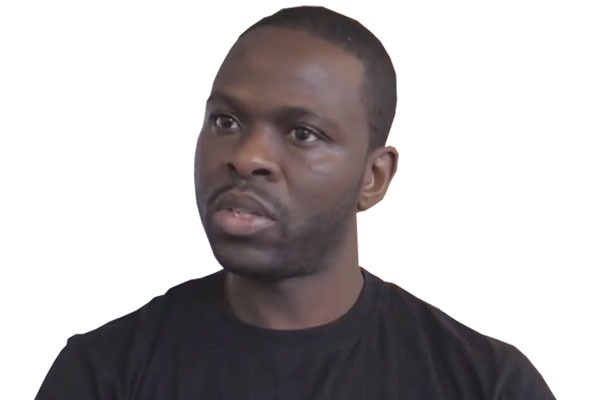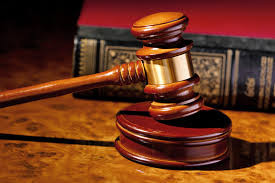
NewsDay (ND) Midlands reporter Brenna Matendere recently had an interview with MDC leader Nelson Chamisa’s spokesperson Nkululeko Sibanda (NS) on a number of issues, including Chamisa’s approach to the multi-layered political and socio-economic challenges facing the nation. Below are excerpts of the interview:
ND: In the midst of the worsening multi-layered political and economic crises that have plunged majority of citizens into a sea of poverty, what is the MDC’s alternative for redemption?
NS: As the country will remember, the people’s president Nelson Chamisa recently finished visiting all the provinces of the country. In all the provinces that the president visited, he listened to the people’s desires and wishes. They sent one message to him: “Restore our country to legitimacy.”
The president’s 2020 agenda includes putting forward five fights for the year:
The fight for a people’s government, reforms and return to legitimacy;
The fight for a better life, dignity and livelihoods;
The fight against corruption;
The fight for rights, freedoms, security of persons and rule of law; and
- Chamisa under fire over US$120K donation
- Mavhunga puts DeMbare into Chibuku quarterfinals
- Pension funds bet on Cabora Bassa oilfields
- Councils defy govt fire tender directive
Keep Reading
The fight in defence of the Constitution and constitutionalism.
ND: Recently, Chamisa seemed to suggest that he now wants a home-grown solution, instead of foreign mediation. What did he mean and how does he want such a model to happen?
NS: President Chamisa was saying what everyone has said, which is exactly that freedom is demanded by the people and taken; it is never given by those who oppress them. He noted the age old truism that the people are the masters of their own destiny.
That everyone and anyone who gets involved in the Zimbabwe crisis will be here to help Zimbabweans find accommodation, find each other and think about their nation and its future. Ultimately, the solution to this country’s problems will come from Zimbabweans. And that is so true.
The president projected the wisdom of the ages and showed his faith in the great people of our country while also respecting the exceptional role that our neighbours and African statesmen and stateswomen can play in helping every one of our countries to find its path forward.
I am aware that there were those who tin-eared when they heard the president speak and sought to define this very generic statement. They said the president was dumping (former South African) President (Thabo) Mbeki. The exact opposite is true, the president said any facilitator would be helping Zimbabweans find each other and define the crucial national interests.
ND: Lately, we have heard some sections of the opposition saying they feel Chamisa is being too soft in confronting ED (President Emmerson Mnangagwa).
NS: I am sure you have also heard sections of the country say that president Chamisa is too harsh and confrontational on Mr Mnangagwa. The truth is that there will be those who would want to destabilise the movement and to cause despondency by creating fake discord within the MDC. We are aware that those who pass such statements are at the services of Zanu PF.
Those who fear the president, like the section you refer to, which is a questionable group, fail to realise that president Chamisa is not a reactionary commander.
He is a deliberative national leader who utilises an experienced eye, exceptional analytical skills and enhanced statesmanship to make decisions about our country, a country he loves dearly.
President Chamisa is a steady pair of hands, who never makes knee jerk reactions to avoid blind spots and ensure clarity of thoughts and ideas.
ND: If dialogue was to happen between ED and Chamisa, we heard from MDC that it will not be about a government of national unity. Help us understand what Chamisa wants to put on the table.
NS: The people’s president, Advocate Chamisa, has made it clear in different forums and through a plethora of media that he does not want to make mistakes that we already made in the past. He says that any talks will not be about accommodation and power.
The president is on clear record saying his interests are solely limited to improving this country in five different major areas, which he has termed zones — the five fights for a better Zimbabwe. His focus in talks will, therefore, through a national transitional mechanism (NTM), seek to achieve what the MDC is focusing on this year, which is:
The fight for a people’s government, reforms and return to legitimacy;
The fight for a better life, dignity and livelihoods;
The fight against corruption;
The fight for rights, freedoms, security of persons and rule of law; and
The fight in defence of the Constitution and constitutionalism.
The president has clear proposals as to what that NTM would look like, what it would do, what role specific individuals have to play. If this was not something that would be subject to any such negotiations I am sure he would have publicised it so that you would all know that with him there are no mistakes, or trial and error outcomes.
Everything is looked at and considered in full and beforehand, with every possible scenario mapped and all contingencies engaged. This president understands how far deep the dark hole that Zanu PF has put us in goes.
As such, he has decided that a scientific and deliberative policy-making approach and framework will be the only way forward, that can help us deal with the deep rot that we are in.
ND: What capacities does Chamisa have which ED does not have to unlock the present economic and political gridlock?
NS: This is an important question which most people tend to overlook. President Chamisa belongs to the future, Mr Mnangagwa cannot use a Twitter account. President Chamisa understands Statecraft and wants to unite this country and is above partisanship when dealing with national issues. Mr Mnangagwa says that the army, the courts and the police belong to Zanu PF. President Chamisa is talking about Zimbabwe in 100 years, Mr Mnangagwa is trying to convince us that he can make it to 2030.
Above all, the most strategically important aspect of president Chamisa’s leadership is that he has instant legitimacy as the president of this country and of the people. Given the best will in the world Mr Mnangagwa could convince his own children to bet on Zimbabwe. President Chamisa bets on Zimbabwe’s odds every morning. Mr Mnangagwa’s illegitimacy emanates from the 2018 declaration which sought to steal from the people.
Rigging elections is a treasonous act which threatens the stability of the country and the region, president Chamisa wants to correct that dent and allow our country to move forward.
ND: Chamisa seems to be changing his tone on the way forward from diplomacy to radicalism or being more offensive, could he be losing patience on efforts to answer the Zimbabwean question?
NS: It will be inaccurate to characterise the president as having changed his tone. President Chamisa is well-planned and deliberate in his actions and processes. From the day the election was stolen, the president maintained a clear-eyed position about the trajectory of our country.
In August 2018, he said that the people of Zimbabwe have the final say on all matters Zimbabwe and in January 2020, he said the same thing.
He believes that although we need our neighbours, although we need a credible guarantor to our processes, such as the important and unavoidable engagements by HE President (Thabo) Mbeki, the solution we find to our problems will be Zimbabwean in form, content and character.
The president is very clear about that. He says we are, indeed, citizens of the world community and we believe in the community of Sadc, but the final guarantors of Zimbabwe’s freedom are the people of Zimbabwe.
However, the president has also always said he would exhaust all other relatively costless methods of achieving Zimbabwe’s independence and allow the situation to escalate as each stage fails.
The president is correct on this and that is the true nature of Statesmen. They are always looking for the best and easiest solution. To hear anything else from him is to be tin-eared. ND: In the MDC, is Chamisa safe in the cockpit because we have heard of some fissures in the party?
NS: I am sorry, but that is absolute hogwash. The MDC is not Zanu PF!
ND: Chamisa has been engaging regional and international leaders on Zimbabwe’s crisis. What is the current situation regarding his diplomatic offensive?
NS: Are you suggesting that he engages on megaphone diplomacy? As one of the foremost Statecraft experts in the region, he will not do that.
ND: There is a current onslaught on MDC leaders, arrests and so on. What is Chamisa’s view on these and his counterintelligence moves?
NS: If you are talking of counterintelligence, I am sure we agree it is not subject to debate in public. On the onslaught, if the regime thinks it will slow down the train of change, on the 21st of January 2020, the president said, “no one can stop an idea whose time has come”.











